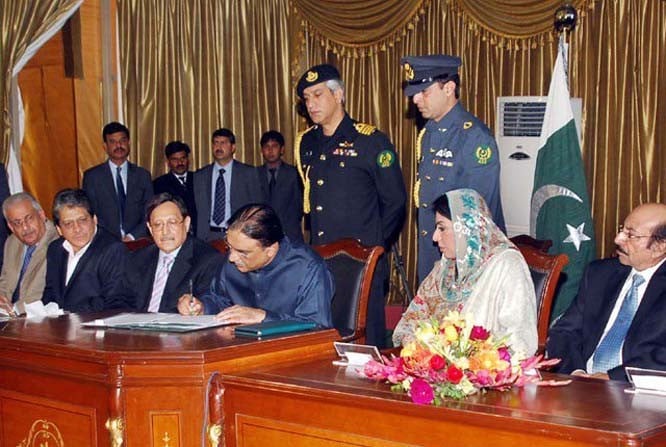
Under the 19th amendment, the appointment of justices to the superior courts took a new direction

Before the 18th amendment, the process of appointing judges in high courts and Supreme Court of Pakistan was clearly controlled and dominated by the top authority of the judiciary - Chief Justice of Pakistan -- and was said to be lacking the necessary checks and balances.
With the 18th amendment, the executive tried to change this system by giving the parliament a role in these appointments. They started making judicial appointments by establishing a Judicial Commission (CJ) and a Parliamentary Committee (PC) to create balance.
However, under the 19th amendment, the Judicial Commission took a strong role in these appointments with powers to sideline recommendations of the Parliamentary Committee.
This whole effort made in April 2010 through the 18th amendment was reversed within a year after passing the 19th amendment in December 2010.
The process of judicial appointments in the constitution, before the passage of the 18th amendment, was that the chief justice of the Supreme Court (SC) recommended a panel of judges to the president, who selected a suitable candidate from that panel. Similarly, for the appointment of judges in the high courts, the chief justice of the concerned high court forwarded a panel of judges to the president which was channelled through the governor of the province and the chief justice of Pakistan. This whole procedure gave a key role to the chief justice of Pakistan as well as the provincial chief justices, while the signing authority (president and governor) remained a formality.
Through the 18th amendment, parliament tried to strike a balance in the mechanism of appointments through a broad legislative exercise and in a reformatory way. As per new law, the appointments in the superior courts were to be processed through the Judicial Commission headed by the chief justice of Pakistan and comprising senior judges of the Supreme Court (two), chief justices and senior judges of the high courts (two), the attorney general (one), federal and provincial law minister (one) and representatives of the federal and provincial bar councils (one).
The JC was to nominate judges for each vacancy. The nominations were then forwarded to the second forum, the Parliamentary Committee, which comprised eight members, four from the National Assembly and four from the Senate, split equally between the Treasury and opposition benches.
Names confirmed by the committee were to be forwarded to the president through the prime minister for appointment. However, this procedure was challenged within a year and considered as an ‘infringement’ on the independence of the judiciary.
The SC took the view that if the JC’s recommendation in favour of a candidate for judgeship was not accepted by the PC, the latter was required to give sound reasons for its decision and refer the matter to the JC for reconsideration. If, upon considering the PC’s reasons, the JC reiterated its original recommendation, the latter became final and the president was bound to make the appointment accordingly.
The clearly visible implication of these suggestions was that the judges should have an overwhelming majority of eight out of the total 11 members in the JC. Additionally, the JC would have the power to overrule the PC. The parliament had to submit and the suggestions were incorporated in 19th amendment.
"The role of parliamentary committee was deliberately weakened for appointing superior courts judges," says Saroop Ijaz, a lawyer and human rights activist, while talking to TNS. "There is need to bring transparency and accountability in the procedure of appointment of superior judiciary in Pakistan and we should think of opting ways like United States of America where there are hearings for such vital and crucial public appointments."
Also read: Editorial
He adds that in our system, "chief justice of the apex court has the huge power in appointments which, realistically, compromises the independence of judiciary and superior courts".